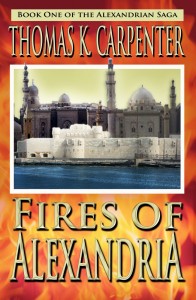Why are certain inventors, philosophers and other learned folk more famous than others? One might assume it’s the impact of their inventions that decide the future brain space of school age children. They would be wrong, of course.
The names we usually know so well are often the ones that did a better job of marketing themselves, or whose biographic facts happened to be the one the publisher picked when it had to fill in “famous inventors of the number-number period.” Or they were trumpted or demonized by a powerful group, as did Galileo by the Church.
I don’t want to belittle the contributions of our more well known inventors and scientists, but I’m a fan of the underdog. The little guy who toiled away in obscurity or whose memory we’ve forgotten because of events far outside of their control.
When I first came upon Heron of Alexandria, a noted inventor and scientist of his time, I was flat blown away. This guy was inventing stuff that was crazy advanced. Then after a little more research I found it wasn’t even the tip of the iceberg. The whole time period around the BC to AD switch was rife with mind blowing inventions, all centered around Alexandria and its Great Library. I knew right then and there, I would write a book about Heron and Alexandria and all the wickedly amazing things that happened then.
That was four years ago. I’ve spent the time in between writing other novels and researching this one. It took a lot of reading, not that I minded. The time period and the city of Alexandria is fascinating. Even the massive tome I read on Caesar was worth the time spent.
Now that I’ve pumped up all the research I’ve done about Alexandria and Heron, I’m going to throw you a curve ball. It’s not a straight up historical fiction novel. I’ve thrown a few of my own “what ifs” into the equation, just to see what would happen. Besides, we know what happened the regular way. Really this way is more interesting. So if you’re a student of history with knowledge of Alexandria and its inventors, don’t get all huffy and fire off a neatly worded diatribe in perfect cursive about how it never could have happened this way, because it didn’t. While it’s all rooted in history and includes many historical figures, it’s an alternate version, a work entirely of my own invention, full of mystery and intrigue and revenge. An alternate history I know you will enjoy, and along the way, learn a few things.
On with the blurb and ordering information:
The greatest mystery of the ancient world remains the identity of who set fire to the Great Library in Alexandria.
One hundred years later, Heron of Alexandria—the city’s most renown inventor and creator of Temple miracles—receives coin from a mysterious patron to investigate the crime. Desperate to be free of the debts incurred by her twin brother, she accepts and sets in motion a chain of events that will shake the Roman Empire and change the course of history forever.
The novel can be purchased as an e-book at Amazon, Smashwords or Barnes & Noble for $4.99 or as a paperback for $14.99.


[…] The AR Reading List « New Release — Fires of Alexandria […]